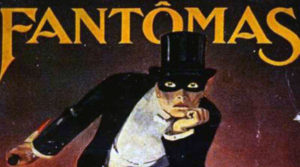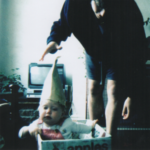Glasgow is a fine place, isn’t it? I’m up here for Celtic Connections, and stopping off to have coffee with a mate in London en-route find myself explaining that it’s really not quite what it sounds like – it ain’t all about Folk. Since its inception in 1994 it’s evolved into one of the biggest, most international music festivals in the UK, involving just about every venue in a city that is certainly not short of venues, and with a bill that this year includes Songhoy Blues, John Grant, Ronnie Spector and the Ronettes, Hen Ogledd, Judy Collins and The Dandy Warhols, it can very easily claim to have something for everyone. You can even go and experience a jazz reimagining of Radiohead, entitled Like a Cat Tied to a Stick (and, dear reader, don’t think I wasn’t tempted). It runs from mid-January to the start of February, and there’s way too much for one reporter to cover. I have three days.
Saturday finds us at The Glad Cafe in Shawlands for Lost Map: Underachievers Club. It’s the first in what will be a regular series of gigs for Underachievers Club, a local collective run by a pair of musicians, Siobhain Ma (Happy Spendy) and Craig Angus (Savage Mansion). Savage Mansion have an LP out on 15 February on Lost Map and so the never-ending bundle of ceaselessly moving energy and fun that is Johnny Lynch of Lost Map and Pictish Trail has come on board to help them present a festival-worthy bill of unpredictable, DIY indie pop. He’s also looking after the merch table, a welcoming, chatty presence in the background. The day looks set to be a good one – it’s early afternoon and the place is busy. The scene here is committed.

First up is Glasgow’s Hairband. Their opening songs are pulled down by technical problems and after a lengthy, apologetic pause to fix their kit play one of my favourite sets of the day. Comprised of members of Spinning Coin, Lush Purr, Breakfast Muff and Kaput their three guitarists trade licks with one another beneath shimmering vocal harmonies. There’s something effortless about it, surfy, colourful and laid back. It’s a shame that this is one of their last gigs for a while because they’re a really great example of what you can do within the indie-pop template. If you like that kind of thing, you’ll love the kind of thing they do. “I can see your smile for miles around,” they sing at one point and everything around them seems to fly. ‘Shall I sing my favourite song?’ they ask, worried about the time, and they do, and by the end, it’s my favourite song too.
They’re followed by Lost Map’s new signing, Callum Easter, who, armed with only an accordion and a drum machine, mesmerises with an insouciant, droney set that recalls the improvisational, hep-cat stylings of Suicide, or Lou Reed. A song like ‘Feelings Gone’ has the cool-but-dumb-as-a-brick quality the personifies great rock and roll, and it’s fascinating to hear an accordion used like a synth. It’s hard to imagine a more perfect home for him than Lost Map. You can catch him yourself on tour with Young Fathers and he’ll no doubt be popping up on 6Music with alarming regularity when the album comes out in April. He’s absolutely the real deal.
Following the magnificent, brooding gloominess of Callum Easter, Happy Spendy breeze through their set with a sweetness and cheeriness that belies their melancholy pop sensibility. Their songs are windows into the awkward intimacies we share with our friends and lovers, and they capture something of their own in what feels like a more general emotional zeitgeist. Again, it’s very synth-led, and vocalist Eimear Coyle’s breathy vocals convey shades of the Sisyphean vulnerability of El Perro Del Mar, but without quite dragging you down into that place. She seems to be having far too much fun today, and you can hardly begrudge someone that. Indeed, ‘I Was Just Trying to Have a Good Time’ stands out as a pitch-perfect, lo-fi assault on the kind of territory once occupied by Isobel Campbell era Belle and Sebastian. They also cover a song that I am reliably informed was originally recorded by Ronan Keating. Something about Rollercoasters? Whoever this Keating guy is, he’s presumably also one to watch. In their hands, it’s a fine piece of work.

It’s good to have Rozi Plain back at last from the nefarious clutches of This is the Kit. I have to admit, that she was the real draw for me today. I’ve been looking forward to getting a taste of the songs from her new album What a Boost! and I’m delighted to confirm that first indications are that it might be one rather delicious record. The new material sounds utterly familiar already but blooming with a newfound sense of drama and an emphasis on shared harmonies that I don’t recall from last time around. Perhaps it’s always been there, but the push-and-pull between Plain and Rachel Ward, who joins her on vocals, works well today. It’s hard to separate a Rozi Plain song from the distinctiveness of her voice. The whole thing is so complete. I’ve never heard anyone cover her work but I imagine it being like hearing covers of Dylan – love him or hate him, you still hear that voice coming through, quite inseparable from the song itself. The point, I guess, is that sometimes, time as your mate’s backing singer and bassist is time well spent. In a short set, she gets to play a couple of songs from 2015’s Friend. I loathe the term anthemic, but if I didn’t I’d apply it liberally and inaptly to ‘Jogalong’, and ‘Actually’ contains some of the wisest words I’ve ever heard: Don’t get over it, this is actually it. Get that one tattooed, kids. The only quibble I have is that she at one stage thanks Underachievers Club for Overachieving, thus robbing me of an obviously cheesy way of wrapping up my review of day one. Dude, spare a thought.
Mush rather pass me by. It’s possible they’re the wrong band on the wrong bill. They’re an energetic proposition and wear their influences (Pavement, The Fall) on their sleeve, but here and now it all feels like there’s lots of drama, but it’s unclear what the drama actually is. It’s not helped by the fact that there’s a tea-time rush going on and a lot of the audience appear to be thinking with their stomachs. Speaking of which, Hug and Pint are doing food here today and we’ve just had the most spectacular sticky rice and shredded tofu skin in some kind of bean sauce. I didn’t even know tofu had skin. I mean, imagine having to be the band trying to follow that with some songs?
Unexpectedly channelling the rowdiness of early Teenage Fanclub, Savage Mansion put on a rousing and uplifting show. Craig, the singer, is one of the promoters (see above), and it’s his birthday, so everyone is on very good form and the atmosphere, by now, shall we say, well-lubricated, is a delight to experience. They’ve got that powerful backbeat, coupled with a knack for a good tune, and you’re left feeling that this is how this particular thing should be done.
I am sad to report that due to the repellent state of privatised public services on our sad little island, I miss out on The Spook School. I’ve got to get back to my mate’s house in Ardrossan and the trains have all gone to hell, so we sneak out into the freezing darkness after a couple of songs for the slog home. I don’t feel too bad about it since my colleague James Thornhill covered them at Rockaway Beach a few weeks ago. In his words: ‘Few bands deliver their music with such wild abandon and sense of purpose and while sloppy around the edges each song is packed with big pop hooks and endearing vocal harmonies.’ I could hardly improve. On the basis of the tiny bit I hear, the astonishing, urgent rush that is ‘Burn Masculinity’, I can see that they’re gonna be every bit as good as the other few times I’ve seen them. What a song, and what a way to open a set. I’d like to think there was a better option, but the more I see of the stuff the more I agree. I’m a middle-aged cis white man, and may I concur – fuck all that shit. Burn it now. Masculinity has only ever been a pain in the arse to me and don’t get me started on what I’ve seen it do to other people. There’s few bands more engaged with the future of the human race, assuming of course that we have one. The Spook School, I salute you, keep up the great work and sorry I couldn’t stick around, but it would have meant persuading a good friend of mine to freeze to death with me on the streets of Glasgow.
We’re back for more on Sunday, this time at the spectacular venue of St Luke’s, where Maarja Nuut notes that although she’s played a fair few churches in her time, she’s never played one with a disco ball. She’s here with her pal Ruum, who provides an electronic context for her ethereal vocal and violin loops. Drawing on the folk traditions of Estonia and filtered through a minimalist and sometimes clubby sensibility, it’s a powerful show that propels your imagination into another world – endless forests and holy places. That might sound a like a bit of a naff thing to say, but as the bass notes reach up inside you, the way they do, and Nuut and Ruum weave one sound with another it’s quite hard to convey the emotional effect of their music. Magical and overwhelming, I don’t want this fairytale to end.

It certainly sets you up for a descent into malevolence, which is what follows. Fantômas, if you’re not already familiar with it, and no, it has nothing to do with Mike Patton, is the eponymous villain of a series of trashy French novels by Marcel Allain and Pierre Souvestre. They took turns writing a chapter each, which goes some way to account for the uneven and often hilariously preposterous plots. Beloved of the surrealists, Fantômas is a criminal genius, a murderous psychopath and master of disguise, and commits ever more bizarre and sadistic outrages, forever one step ahead of the dogged Inspector Juve and his sidekick, the journalist Fandor. It has one foot in the tradition of nineteenth-century gothic and the other in the emerging mass media of the twentieth century. I always found it a bit silly. If anything, it looks forward to the style of narrative you find in the American superhero comics that would supersede it, and Louis Feuillade’s 1913 movie serial would certainly have enjoyed a similar audience to the Marvel films that dominate the cinema today – they would have known the stories beforehand, been familiar with the characters and more interested in seeing the way the story is interpreted than in finding out what happens next. My memory of it was that it didn’t really stand up all that well.
So amiina’s live score tonight is a bit of a revelation. It’s a real masterclass in how to make suspenseful music and in how music makes any bit of film come alive. Again, they mix electronic sounds with strings, but with the addition of some truly gob-smacking percussion work. We find ourselves in cloaked in an atmosphere of conspiracy and impending tragedy. It’s not always clear what’s going on, but it doesn’t matter. We’re all caught in Fantômas’ web. The streets of pre-war Paris look totally alive, the train robbery becomes terrifying, and they overcome the problem of cinematic vernacular the film presents, exploring Feuillade’s skill at choreographing the movement of actors within a mise-en-scene. They bring out the depth of Rene Navarre’s performance as Fantômas. Every twitch of his stony face, every mascara’d sneer, looms out of the screen even when he’s in the background.
As the film builds to its conclusion – *spoiler alert* it’s something involving a giant snake and a bomb – with amiina’s help I finally get this fictional world. It remains extremely daft, but Juve and Fantômas, while far less compelling than, say, Holmes and Moriarty, are somehow both more plausible, more human. The only question that remains is how will amiina handle Juve’s anti-python suit? Yeah? And when you sat down to read about Celtic Connections were you expecting a question like that? In the spirit of Fantômas I’ll leave you to await the next instalment, and only say that as an aspiring vegan that the fate of that poor animal left me feeling very uncomfortable.

Next day we’re in the Hug and Pint, and let me run that by you again. It’s literally Monday at the Hug & Pint. Life goal = ticked. And considering that Arab Strap, more than anyone, can take the credit for mixing electronica with folk, what better context in which to experience Haiku Salut. There’s no lamp show tonight, which works in their favour. It’s all focused on the music, which takes on a tougher, dirtier edge. ‘Bleak and Beautiful (All Things)’, when it comes, hits you like a night ride on the motorway, a perfect moment with someone you’ll never see again. Mostly they stick to material from last year’s There is No Elsewhere and having taken the music on the road, they’ve reworked parts of it into something more direct.
As always the teamwork that goes on as band members swap drums for an accordion or pull out the brass for ‘Cold to Crack the Stones’ is spellbinding. Throughout my trip here, the commitment and attentiveness of Glasgow’s audiences have been impressive. This tiny room is packed out, and it’s clear they’re into it. And why wouldn’t you be absorbed by a band residing in such a shadowy intersection between the bucolic and the euphoric strands of English music? At one with the village green with the illegal rave, tonight, pieces like ‘The More and Moreness’ and ‘Occupy’ urge you to report to the dance floor, while simultaneously evoking the view across a wintery landscape. It helps perhaps that electronic music now sometimes feels anachronistic, more engaged with tradition than it either knows or likes to let on. These musings aside, the slow, hushed steps of ‘Shadows’ have a devastating, meditative power. Stripped of visuals Haiku Salut really are superb.
After three days here, I’ve not even scratched the surface of what a great experience Celtic Connections has to offer. It’s not a festival in the conventional sense, but Glasgow definitely has a vibe you don’t find in other British cities. More than once I’ve been standing around looking lost and had a stranger come along with a bit of chat, and had the kind of pleasant and slightly random encounters that invigorate you somewhere like Green Man and leave you wondering why life can’t be like this all the time. I’d like to come back one day and explore more of the African music on offer. Sourakata Koite and Sona Jobarteh both looked like intriguing connections to explore, and the middle of January in the freezing cold might be the ideal time to do it. Other cities should look and take note. It’s the perfect answer to the question of how you get people out of the house and supporting live music in the dead zone of the new year.




